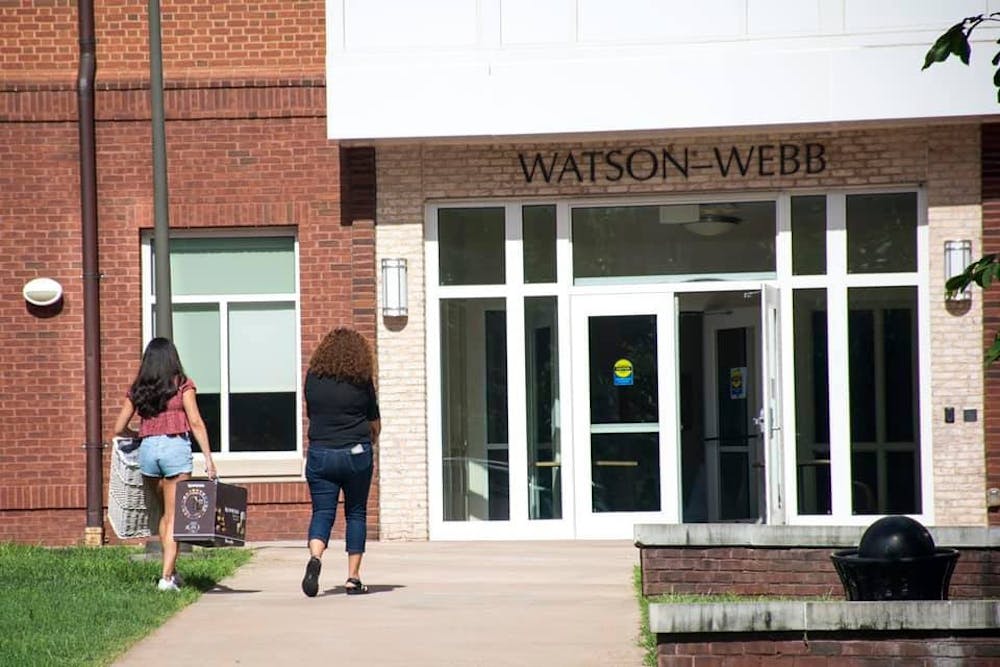The University administration’s decision to bring thousands of students back to on-Grounds housing created an entirely new group of frontline workers during the pandemic — resident advisors. Housing and Residence Life has a history of treating RAs haphazardly. Its indifference towards this group of student workers — especially during a time when COVID-19 is likely to cause outbreaks in dorms throughout Grounds — demonstrates a systemic flaw within Housing and Residence Life and how it treats its student employees.
Members of Residence Staff recently released a list of demands for the upcoming semester in response to the University’s negligence. Now endorsed by Student Council, six of these 10 demands relate specifically to issues regarding “COVID-19 & Safety” — highlighting just how ill-prepared the University is in protecting these students on the frontline. Students working in these roles are tasked with handling the issues brought on by the University’s decision to bring students back to Grounds — they deserve the financial, food and housing security that the University has refused to provide.
Many resident advisors are living in first-year dorms — sharing communal bathrooms and the close-quarters living situations. Thus, the duties associated with being a member of the resident staff have only become dangerous due to the ongoing pandemic. The need to enter all bathrooms in the dorm during scheduled coverage days or having to interact with countless students only heightens the risk of contracting the virus. However, many resident staff members have noted that the lack of adequate personal protective equipment is a serious concern. The University continues to ignore the risks now associated with being a member of the resident staff in an ill-fated effort to absolve itself of ultimate culpability. When these students get sick at work, we must remember that the University allowed for it to happen.
Further, with the closure of common kitchen areas in dorms, resident staff are forced to deal with a difficult dining situation during a semester in which dining halls have become flooded with huge lines due to COVID-19 restrictions. Typically, the dining compensation includes enough swipes to have about one meal a day — as the kitchens in their place of living are closed, these students deserve access to food security outside of the use of a microwave. The University adding 20 additional meals to the dining compensation is not enough. It is ignorant for the University to assume that all students serving as resident advisors can afford to feed themselves without the use of kitchen appliances. It completely ignores the plight of low-income students and will contribute to a rise in food insecurity.
Moreover, the housing insecurity created by the University's last-minute decision to bring students back to Grounds introduced several other concerns such as the possibility of being forced to relocate. For instance, hundreds of RAs and residents in Shea House, the International Residence College and the Johnson, Malone and Weedon residence area had their move-in plans changed to accommodate for increased quarantine housing. These students had just days to find an alternative living situation or move dorms.
Further complicating matters, HRL has a policy that restricts resident staff from speaking to the press — creating a barrier for resident advisors to organize and raise concerns about unfair practices. In fact, several staffers chose to sign and support the aforementioned demands anonymously out of fear of retaliation from HRL. This suppression of student voices clearly demonstrates the University’s inconsistent support for student self-governance and disregard for the well-being of the community — employing both only when convenient.
This is just a subset of the numerous issues resident advisors face as new frontline workers. HRL has made its indifference towards resident advisors clear. It exploits student labor without protecting their lives. The University administration’s negligence is directly putting student workers’ lives at risk by actively ignoring the demands of residence staff, and not providing adequate protective gear, food allowances or financial security. A safe reopening cannot exist if the lives of countless student workers are being ignored.
The Cavalier Daily Editorial Board is composed of the Executive Editor, the Editor-in-Chief, the two Opinion Editors, their Senior Associate and an Opinion Columnist. The board can be reached at eb@cavalierdaily.com.







